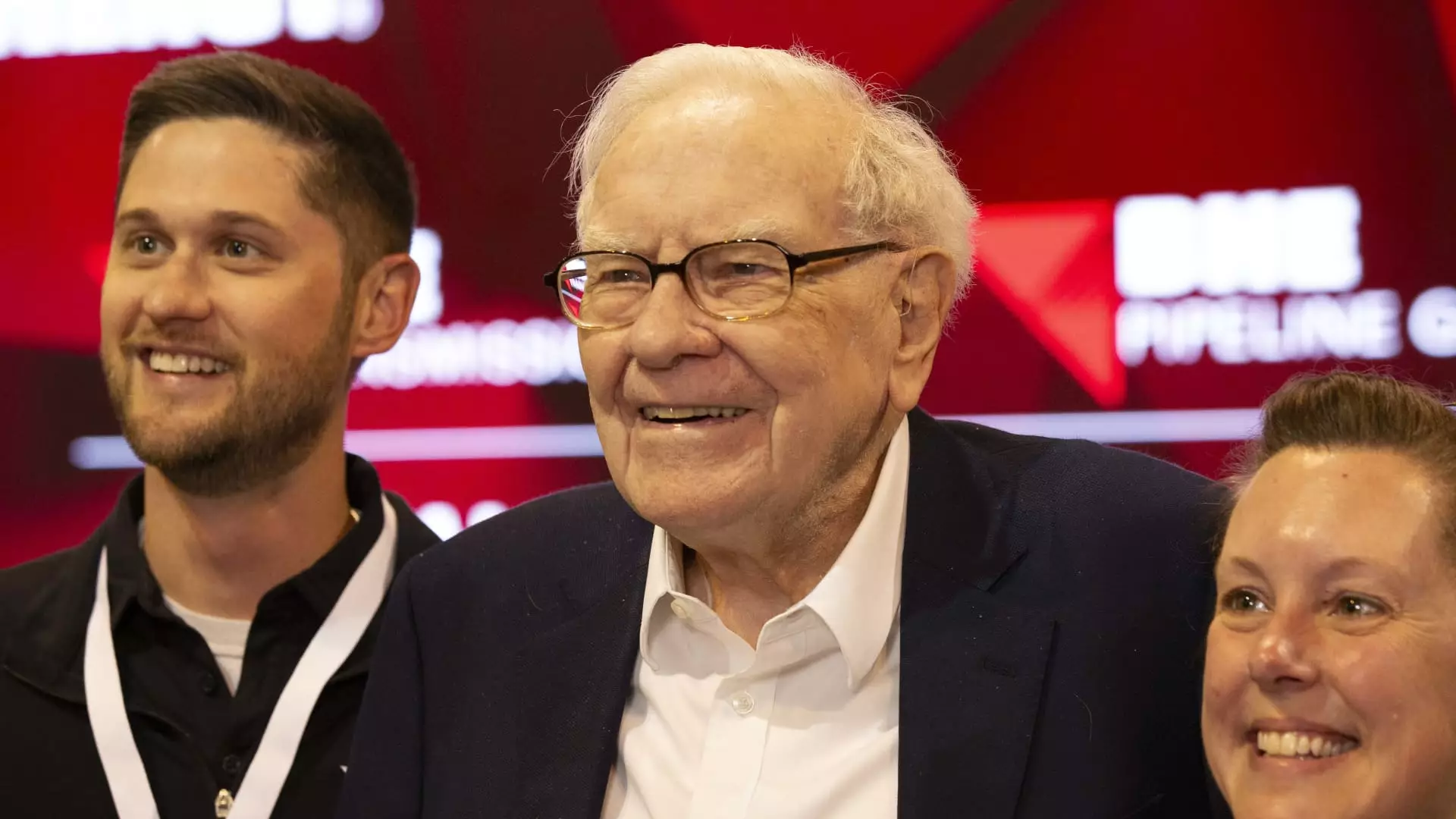Warren Buffett, the revered investor known as the Oracle of Omaha, has made headlines again by significantly reducing his Apple Inc. stake yet again. This marks the fourth consecutive quarter in which he has downsized his investment in the tech giant. At the close of the third quarter, Berkshire Hathaway revealed a staggering 70% of its equity portfolio is concentrated among merely five stocks: Apple, Bank of America, Coca-Cola, American Express, and Chevron. This reveals a clear strategy, emphasizing that Buffett tends to focus on a handful of significant investments rather than a widely diversified portfolio.
The recent disclosures indicate a complex interplay of factors influencing Buffett’s decisions. Selling about a quarter of his Apple stake has prompted discussions around whether Buffett’s motivations stem largely from impending concerns regarding capital gains taxes or if deeper issues pertaining to the company’s valuation and operational fundamentals have played a role. Already under scrutiny for these persistent sell-offs, Buffett’s actions could reflect a cautious approach in an uncertain economic landscape, leading to speculation amongst analysts and investors alike.
Berkshire Hathaway’s actions speak volumes about its evolving investment strategy. Along with the reduction in Apple shares, the conglomerate has substantially decreased its stake in Bank of America, harvesting over $10 billion since mid-July. The continued selling pressure has changed the hierarchy of Berkshire’s holdings, positioning American Express above Bank of America for the first time in years. By the end of September, American Express was valued at $41.1 billion while the dwindling stake in Bank of America fell to just under 10%, a critical threshold that necessitates more frequent regulatory disclosures.
Moreover, while Buffett is frequently associated with blue-chip stocks and timeless consumer brands, his notable energy stake in Chevron has remained intact, maintaining a valuation of $17.5 billion. This mirrors a more stable approach during turbulent times in the energy sector, despite Chevron’s modest growth of 2.6% this year that trails behind the robust performance of the broader market. Coca-Cola, another enduring Buffett favorite, was also preserved in its valuation at $28.7 billion, growing by 10.3% in 2024, yet still trailing under the S&P 500’s impressive return of 20.1%.
Buffett’s recent decisions signal a pivotal shift in how he views his holdings and the broader market context. While Apple has historically been one of his marquee investments, the recent pattern of offloading shares could reflect a keen awareness of the market climate and potential future tax implications. By carefully managing his major stakes, Buffett underscores a disciplined investment psyche that favors long-term sustainability and capable growth over speculative ventures.
As fiscal discussions and market valuations continue to evolve, it will be intriguing to observe whether these changes signify a broader trend toward more conservative maneuvers within Berkshire’s significant holdings or if they represent momentary adjustments in an ever-fluctuating market landscape. Buffett’s strategic vision remains essential for advisors and investors as they navigate their portfolios in a similarly unpredictable environment.


Leave a Reply